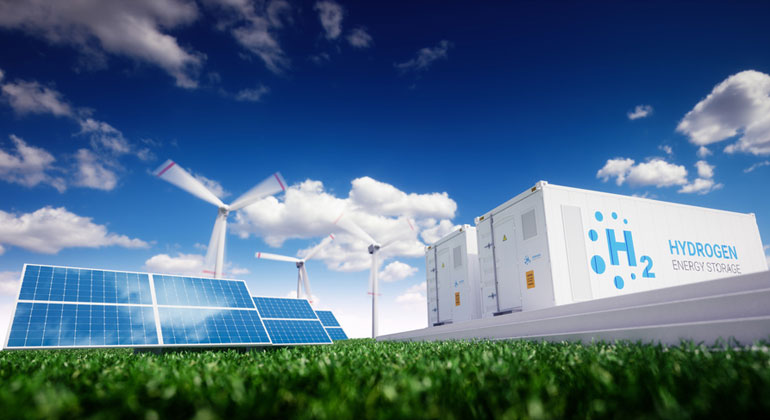European renewables capacity to see a 3-fold increase by 2050, yet fall short of climate goals, new Aurora report finds
Aurora Energy Research has released its inaugural European Renewables Market Overview Report (ResMOR), projecting that intermittent renewable energy capacity in Europe will more than triple by 2050.
However, the global provider of power market analytics warns that this growth will still fall short of meeting climate goals, with risk factors such as negative prices, market saturation, and grid congestion hindering progress.
Over the past decade, Europe’s renewable energy capacity has increased to over 528 GW, driven by rising power demand, supportive policies, higher commodity prices, the phase-out of thermal power plants, and supply chain improvements. This growth aligns with the EU’s updated Renewable Energy Directive, which raises the 2030 renewable energy target from 32% to 42.5%. To meet this target, EU countries aim to add over 600 GW of renewable capacity by 2030, compared to 2024 levels.
Negative prices, market saturation, and grid congestion hindering progress
Non-shielded renewables assets face increasing risk from negative prices with Central Europe seeing the lowest negative prices and the Nordics leading in frequency, according to Aurora’s ResMOR. Although some countries previously offered protection against negative price hours in subsidy schemes, most now provide little or no protection.
Aurora further highlights market saturation as a challenge for renewables, emphasising the need for more energy storage and flexibility, which are not yet deployed to substantially mitigate price cannibalisation. Greece, Romania, and Great Britain are most at risk of renewables market saturation impacting the merchant business case.
Aurora anticipates that grid congestion is another major bottleneck for renewable energy expansion. In 2023, Europe saw 57.28 TWh of remedial actions for both renewable and non-renewable assets, a 14.45% increase from 2022. Germany, Poland, Great Britain, and Ireland curtailed the most energy, with remedial actions as share of electricity demand exceeding 4% in these markets, reaching about 9.5% in Ireland according to the analysis.
Compensation for grid curtailment varies across Europe and depends on factors such as the asset set up, action type, and government support available. Markets like Great Britain, the Ireland I-SEM, France, and Poland compensate firm grid connections for congestion-based curtailment, but new connections are mostly non-firm, increasing risk. In some cases, like Spain, not all actions are compensated.
Despite these challenges, significant opportunities are available for developers to mitigate risks and unlock value. Key strategies include BESS co-location, portfolio diversification, and accessing additional revenues through capacity, ancillary, and balancing markets.
Rebecca McManus, Renewables Lead, Pan-European Research at Aurora Energy Research, commented:
“Negative prices and grid constraints are significant risks for renewable assets in the market today, which will be further exacerbated with more renewables deployment. It’s vital for developers to explore opportunities to de-risk projects such as portfolio diversification to mitigate impacts.”
Jannik Carl, Research Associate, Pan-European Research at Aurora Energy Research, added:
“While Spain and Great Britain boast a robust pipeline of merchant renewables, most European developers still rely on stable revenue streams and market risk protection. Policymakers must ensure strong incentives and flexible frameworks—like combining subsidies with PPAs and offering curtailment protection—to drive the sustained growth of renewables and achieve Europe’s Net Zero climate goals.”
- Aurora’s European Renewables Market Overview Report (ResMOR) redacted version is available now—get in touch for further information.








